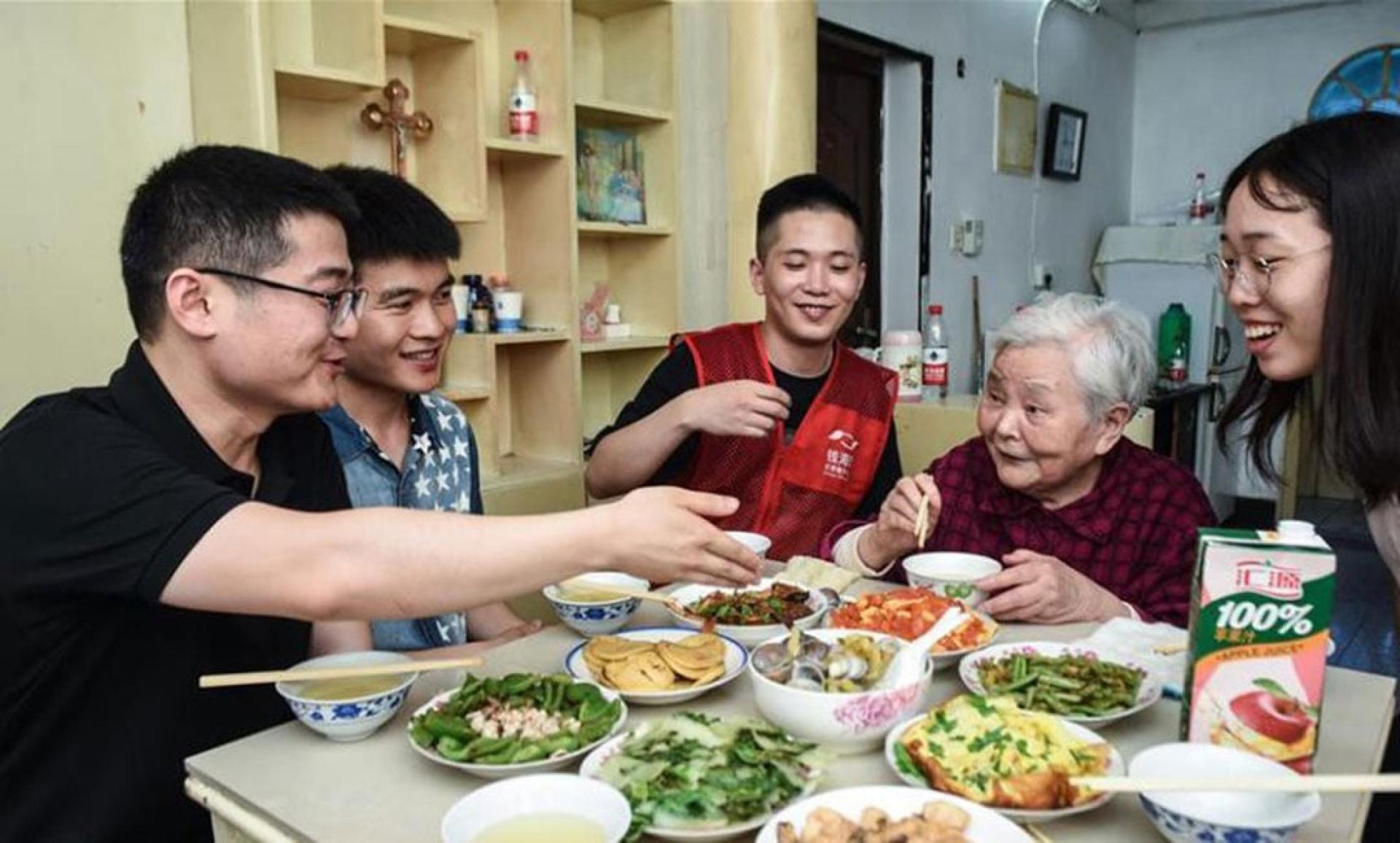As China’s population ages and the issues of only-child families and young generations working far from home become more pronounced, a growing number of elderly are left living alone or as “empty nesters.” Recently, a new service called “outsourced children” has emerged, allowing seniors to pay for temporary children who provide companionship, accompany them to medical appointments, chat, go for walks, or even appear at nursing homes and hospitals to create the impression of a lively, involved family and prevent staff from mistreating them. This service has become a new option for elderly people seeking to cope with loneliness and inadequate support in later life.
● Retired Soldiers Form 'Filial Piety' Teams
According to Chinese media reports, in September, the “Leiting Bodyguard Team” in Dalian, Liaoning, launched the “outsourced children” service. Made up of retired soldiers and others, these temporary children charge per session, typically 500 to 2,500 RMB (about 290 to 1,450 MYR), to provide seniors with emotional support through companionship, conversation, and walks, as well as accompanying them to medical appointments, mediating disputes, and even showing up at nursing homes to “maintain a lively atmosphere”—leading staff to believe the resident has involved children and discouraging them from being negligent or abusive in their care.
The reports state that response to the service has been positive, and the team has expanded to over a thousand members in just three months. Similar services have been launched by companies in other provinces such as Henan.
According to a recent report by “Beijing Youth Deep Focus,” the demographic using such services has now begun to include people in their 50s and 60s. Most are not yet completely disabled, but—due to their only child living overseas or having no close family—are proactively seeking emotional and practical support. Unlike traditional babysitters or caregivers, they are looking for someone reliable who can provide long-term companionship and build an emotional connection.
Interviewee Wu Wei shared that since 2011, she has been involved with several young people under the label of “shared children,” building long-term paid relationships that gradually evolved into mutual support and visiting each other during festivals—a kind of “quasi-family” relationship. Wu described it as: “They all have their own parents—I’m just borrowing some companionship, like borrowing Wi-Fi.”
Behind the need for companionship, some interviewees are already considering legally establishing a “contracted guardianship” relationship. Wu Wei expressed hope to select a suitable person among these “shared children” and sign a guardianship agreement while still fully competent—exchanging assets for dignified care. But there are still barriers in reality, including legal risks, building trust, and mutual willingness.
According to official statistics released in 2024, the elderly dependency ratio reached 22.57% in 2023, with the elderly making up a higher proportion than children in many areas. Faced with weakening family support and worsening population aging, “outsourced children” may only be one of many potential solutions, and whether it can become an institutionalized support system remains to be seen.
